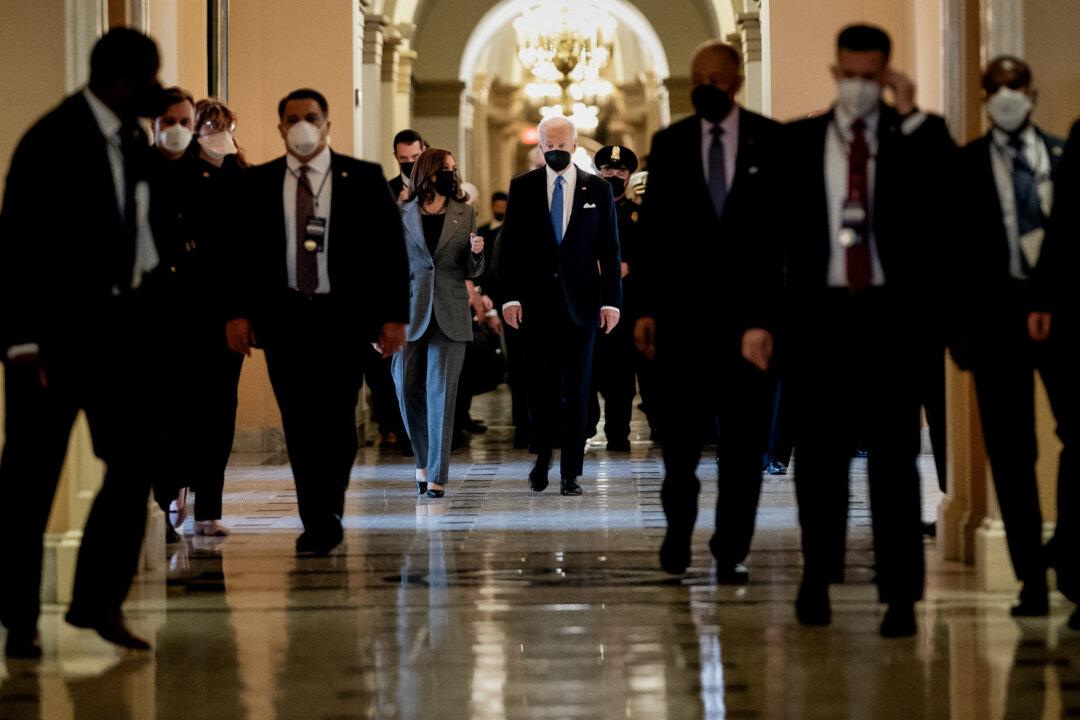A U.S. Secret Service special agent was removed from duty after exhibiting “distressing” behavior that reportedly led to a physical altercation with other protection detail agents while supporting Vice President Kamala Harris’ departure from Joint Base Andrews on Monday.
The agent, whose identity was withheld, suffered a “medical incident” and was immediately “removed from their assignment,” Anthony Guglielmi, chief of communications for the Secret Service, said in a statement to The Epoch Times.





